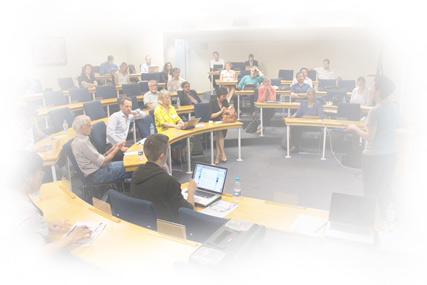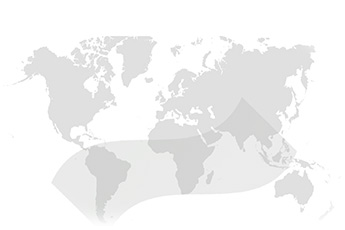Higher education faculty attitude, motivation and perception of quality and barriers towards OER in India
Read the chapter |
Access the dataset |
The premise of this study is that teachers’ conceptions of the quality of Open Educational Resources (OER) and their attitudes and motivations towards using OER will influence whether and how they use and/or contribute open resources. Understanding teachers’ attitudes, motivations and barriers to OER use and comparing data across institutions may help to identify the issues that influence OER uptake in India. This chapter attempts to answer the following four research questions: How are teachers’ attitudes towards OER situated in the context of teaching and learning? What are teachers’ motivations for using OER and sharing their work as OER? How do teachers perceive the quality of OER? What barriers to using OER do teachers perceive?
This study employed a mixed methods approach, using a survey to gather the quantitative data which form the focus of this chapter, as well as workshop engagements and interviews to collect qualitative data. The research was carried out at four universities representing the varying contexts of higher education teachers in India – one state, open university; one dual-mode university; one semi-urban university; and one multi-campus, private university – and amongst the WikiEducator India community. At each university, a three-day OER workshop took place where 30 teachers learned about OER and completed a survey. In addition to the 120 workshop participants engaged at the four universities, the survey was sent to the 107 members of the WikiEducator India community who participated in the research process. Of the total of 227 teachers who were asked to take the survey, 149 survey responses were received, of which 117 (comprised of 43% females and 57% males) were useable. A total of 28 educators from the universities were also interviewed.
Despite the relatively low levels of awareness of OER demonstrated by Indian teachers prior to the research process, they were very positive about creating and sharing OER, while being slightly less enthusiastic about using externally developed materials. Many of the positive attitudes stemmed from: the sense of satisfaction obtained when others use and adapt their materials; useful feedback received from peers; increased reputational profile experienced as a result of sharing; collaborative opportunities introduced in the sharing process; and the belief that their own sharing would encourage other teachers to do the same. The teachers were mildly cautious about OER quality issues, but said that they would use OER if they were appropriate for their needs. They acknowledged a number of barriers to using and sharing OER, including a lack of understanding of intellectual property, copyright and open licensing; a lack of time; and the lack of funding, institutional incentives and support for OER activities.
The authors recommend that advocacy to raise awareness of OER in Indian universities should be a top priority, with a particular focus on teachers and senior administrators; teachers should be released from certain duties and provided with
the time required to engage in OER activity; incentives in the form of awards and/or recognition in promotion should be provided for teachers to undertake OER development; quality assurance mechanisms for OER produced should be introduced; and continuous professional development opportunities should be provided to teachers through regular workshops and training sessions on advanced information and communication technologies and OER skills.
The dataset arising from this study can be accessed at:
https://www.datafirst.uct.ac.za/dataportal/index.php/catalog/578
Citation
Mishra, S. & Singh, A. (2017). Higher education faculty attitude, motivation and perception of quality and barriers towards OER in India. In C. Hodgkinson-Williams & P. B. Arinto (Eds.), Adoption and impact of OER in the Global South (pp. 425–458). Retrieved from
Research on Open Educational Resources for Development. Faculty perceptions of OER in India. (ROER4D Sub-project 3) [dataset]. Version 1. Cape Town: ROER4D [producer], 2015. Cape Town: DataFirst [distributor], 2016. Available at https://www.datafirst.uct.ac.za/dataportal/index.php/catalog/578/related_materials.
Mishra, S. (2017). Promoting Use and Contribution of Open Educational Resources. New Delhi, India: Commonwealth Educational Media Centre for Asia. Retrieved from
Mishra, S., Sharma, M., Sharma, R. C., Singh, A. & Thakur, A. (2016). Development of a Scale to Measure Faculty Attitude towards Open Educational Resources. Open Praxis, 8(1). Retrieved from
Workshops
Part of the research project involved organising four workshops on OER for Development to train about 130 teachers in Indian Universities to understand OER and participate in research process. Resources, in the form of presentations, from the workshops are available at the links below:
Other outputs
Mishra, S. (2016). Maintaining Use and Adaptation of Open Educational Resources in Indian Higher Education: a Model. Poster presented at PCCF8. Retrieved from
Sharma, R. C., Thakur, A., Sharma, M. and Mishra, S. (2015). Teachers’ Perception of Open Educational Resources: Data Collection through Workshops (ROER4D).
Mishra, S. (2017). Attitude, motivation and perceptions of quality and barriers to OER in India (video). Retrieved from https://www.youtube.com/watch?v=vVmWnrHH6c0&index=6&list=PLqSYUJvxD-UDZPS5NwTJixYZqHTgYu7i2




Hi Jennifer Maddrell,Thanks for sharing this OCW/OER post with your rraedes I hope it will get more people excited about OCW and OER. It is amazing the amount of learning gems you can find within these repositories if we just begin the learning journey Warm Regards,Zaid (or ZaidLearn)